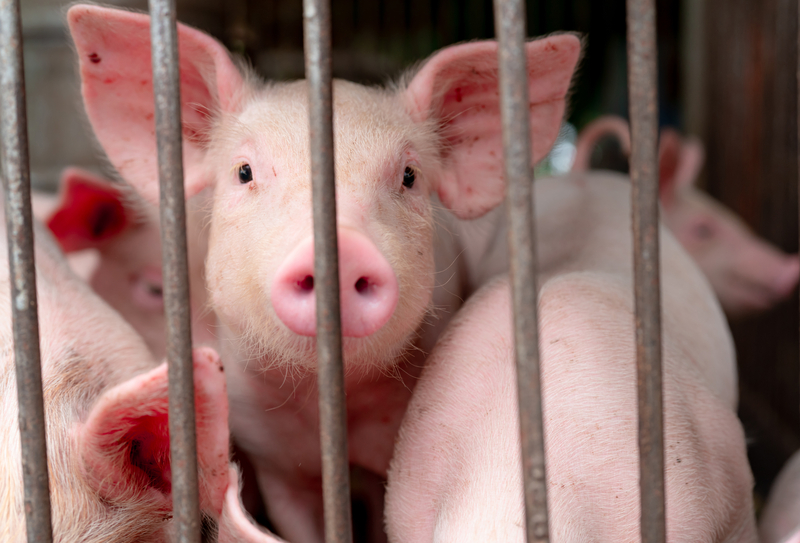
PIG raisers belonging to the National Federation of Hog Farmers Inc. (NFHFI) oppose the idea of easing government rules on the sale of imported frozen pork in wet markets, arguing that it will harm consumers’ health and local production.
NFHFI President Chester Warren Y. Tan said relaxing the Department of Agriculture’s (DA) Administrative Order (AO) 6 series of 2012, which outlines the guidelines on handling frozen meat in wet markets, will benefit neither consumers nor producers.
Reacting to Socioeconomic Planning Secretary Karl Kendrick T. Chua’s recent statement, Tan pointed out that relaxing AO 6 is tantamount to sacrificing the country’s precautionary health measures and safeguards of good practice in handling meat products.
“Is this the only way to solve the problem, by reversing or not respecting our AO, by relaxing it? This will definitely not benefit the local producers,” he told the BusinessMirror.
“It seems irresponsible to comment and suggest that imported pork be allowed to be sold in the wet markets without refrigeration,” he added.
Tan claimed it is common knowledge in the country that frozen meat “easily gathers bacteria and spoils faster” compared to fresh pork when thawed.
“Does the government want to distribute frozen pork in wet markets even if they do not have freezers?” he said.
“It is not the fault of hog raisers if consumers prefer fresh local Filipino pork than frozen pork,” he added.
Easing of rules
Last week, Chua said the government must ease its rules on the sale of frozen pork to wet markets to further temper food inflation, which he noted remains elevated due to expensive pork products.
Chua noted that pork prices remain high in areas outside the National Capital Region (NCR) since certain existing government rules hinder the sale of imported frozen pork to wet markets.
“One reason for that is some restrictions that prevent some of these imported supplies from being sold elsewhere, especially in wet markets. This is something we think should be more relaxed so more people can benefit,” he explained.
Chua was referring to a decade-old government rule that imported frozen pork cannot be sold in wet markets unless vendors are equipped with the right refrigeration system to properly store, handle and display these meat products.
Under AO 6, chilled meat products sold to market should not be frozen and shall maintain a temperature not higher than 10 degrees Celsius, while frozen meat should be stored, held and sold at a temperature not higher than zero degrees Celsius and should be stored in a meat cold storage at less than -18°C. (Related story: https://businessmirror.com.ph/2018/04/21/phls-stiff-meat-trade-rule-stays/)
Not inflation alone
Tan also urged the government, particularly Neda, to assess the market situation holistically and not base their policy recommendations on inflation alone.
Tan said recent policy statements of government officials signal that the country is still leaning toward more imports than supporting domestic production.
“We hope Neda can look at this based on the actual situation on the ground and not just by figures they gathered. Please do not single out pork,” he said.
“The government’s suggestion is for short term only and the consequence is that they are just prolonging the domestic local industry to go back to its normal position, because all their actions are indirectly telling local producers to lay-low,” he added.
Since the issuance of AO 6 Series of 2012, industry groups such as the Meat Importers and Traders Association (MITA) and Philippine Association of Meat Processors Inc. (Pampi), have sought the suspension or even the elimination of such rule, claiming that the order is discriminatory against imported meat products and is not based on science.
In 2013, the DA conducted a study to prove that AO 6 is based on science. The study found out that “thawed meat is not the same meat as newly slaughtered meat,” arguing that “thawed meat provides a more conducive environment for pathogen growth.”
“Once meat is completely thawed, pathogens reach the ‘level of concern’ immediately, for Staphylococcus aureus and shortly thereafter, for salmonella,” it said.
“The above findings justify the requirement in AO 6 to hold frozen thawed meats at a maximum temperature of 5 degrees Celsius to prevent the rapid multiplication of pathogens on thawing,” it added.

